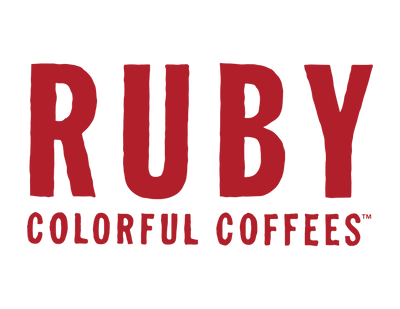This week, Ruby Coffee Roasters obtained certified organic status from the Midwest Organic Services Association as well as launched our flagship organic blend, Organic August Seasonal Blend. This process allows us to sell, label, handle, and process products as organic, and has taken us many steps in order to meet the rigorous USDA National Organic Standards. In a nutshell, certified organic products only are in contact with natural substances, and don’t come in contact with any synthetic chemicals. You can read more about that on the USDA website. Ruby’s founder, Jared, had this to say:
For Ruby, organic certification means honoring the effort and labor of the coffee producers we work with who are certified organic. Certification can be a long and expensive process, and the farmers who dedicate their time, energy, and money into becoming certified organic should have their hard work advertised to Ruby customers right on the front label of the bag.
However, organic certification isn’t available to every coffee farmer. Ruby works with many farmers who own small, single estates and face a variety of challenges that can keep them from pursuing certification. Some farmers may find that a small amount of pesticides applied to the border of their farm is necessary to prevent insects from ravaging their crop. Other farmers might not be able to source enough organic fertilizer for every tree on their farm. Los Guacharos, a group of farmers Ruby has worked with for a number of years, have transitioned away entirely from chemical inputs. While they don’t have immediate plans to pursue certification, they have developed an organic compost fertilizer system, and pesticides made from leftover coffee cherry husks. Many farms that Ruby buys coffee from are in similar positions. It’s important to Ruby to work with farms that are environmentally friendly and sustainable, which is why we have cultivated relationships with many of our small farm producers in order to have direct conversations around their growing practices.
For larger co-operatives and farmer groups, it’s impossible to connect to every individual farmer, making certification an important way to track farming practices. These groups might service up to 800 individual garden farms, like Worka Chelbessa in Ethiopia, or be composed of 200 smallholder farms in countries like Peru or Mexico. Certified organic status means that they have a rigorous set of standards and systems applied, and every farmer, plus the processing facility, meets them. These large groups often produce some of our favorite coffees of the year, and by having an organic certification, they’re proving their commitment to sustainable farming practices and maintaining a strong relationship with the earth that they farm.
It’s a similar process for many people buying produce on their grocery list. If you’re able to buy produce directly from a farmer or a vendor at a farmer’s market, it’s easier to ask them questions about sustainability and their farming practices. When buying produce at a grocery store, however, the organic certification is designed to help customers choose produce that is grown and processed under clear organic standards.
At our roastery and headquarters, organic certification involved implementing an extremely rigorous documentation process. Every cleaning product and soap used had to be categorized and listed for review, along with creating an entirely separate tracking and storage system for organic coffee. Between batches of conventional and organic coffees, we roast a batch of organic coffee that is labeled as conventional to “flush" the system. This ensures that the environment has been properly prepared for organic batches, and that they do not come in contact with surfaces that have been in contact with non-organic batches of coffee.
One thing organic certification doesn’t affect is the quality of the coffee itself. There are many amazing tasting coffees that aren’t certified organic, and there are coffees that are certified organic but wouldn’t meet Ruby’s quality control standards. Ruby will be continuing to evaluate green coffees with our same evaluation processes, which involve looking at quality of green coffee, flavor profile, sourcing history, relationships, environmental practices, and ideology. While Ruby has been buying organically grown coffees since our inception, only now that we have our certification are we able to advertise that coffee has followed organic processes to our customer, and not just to our warehouse.
We’re proud to be able to offer certified organic coffee to our customers. We’re also excited by the opportunities this opens up for coffee farmers we work with and for customers who are interested in organic coffee. For us, this certification represents bridging the gap between coffee farmer and coffee drinker by honoring the commitment of the certified organic farms.
